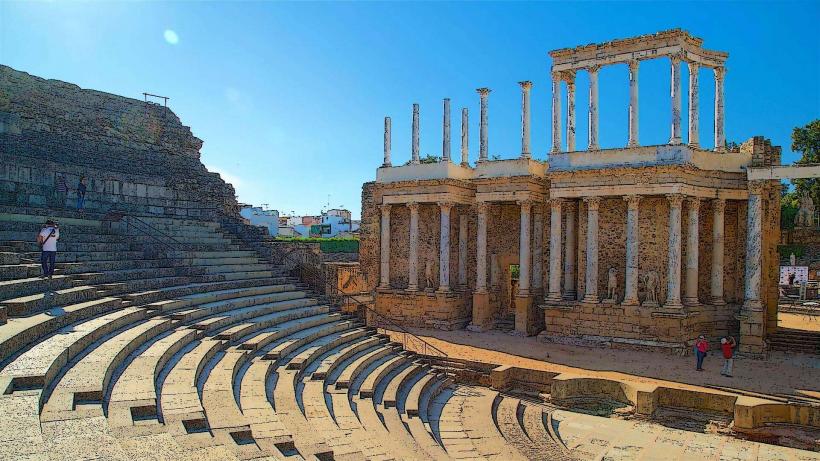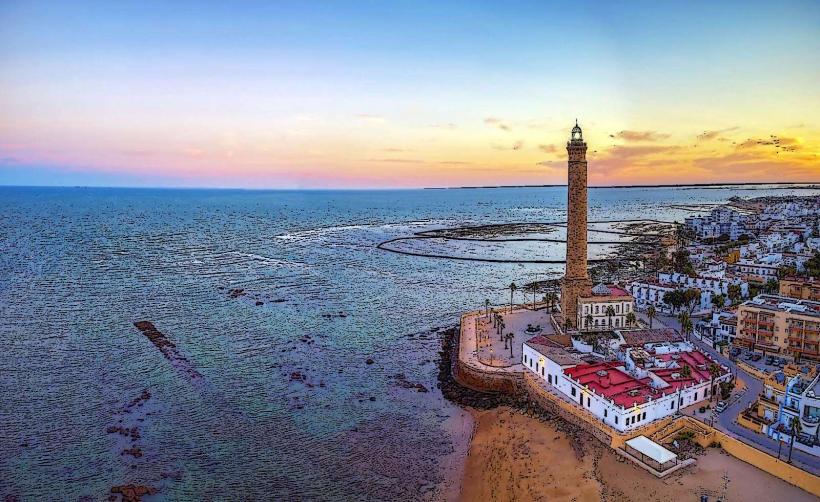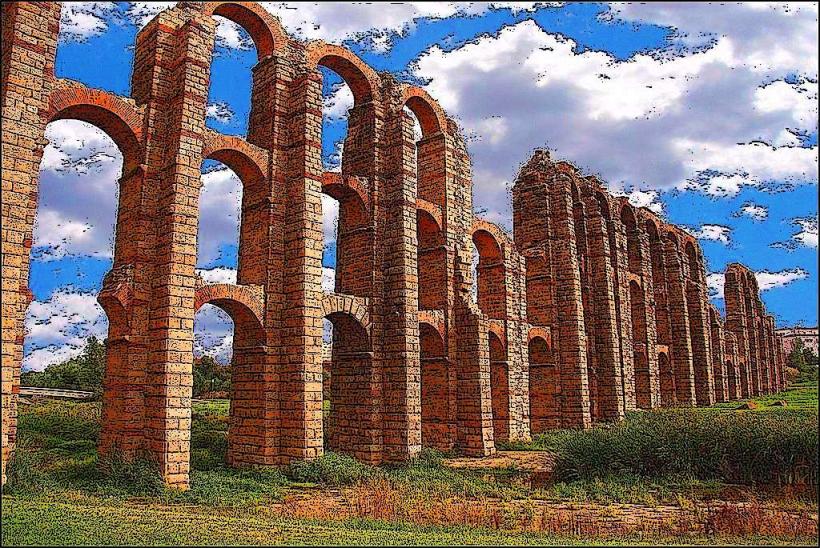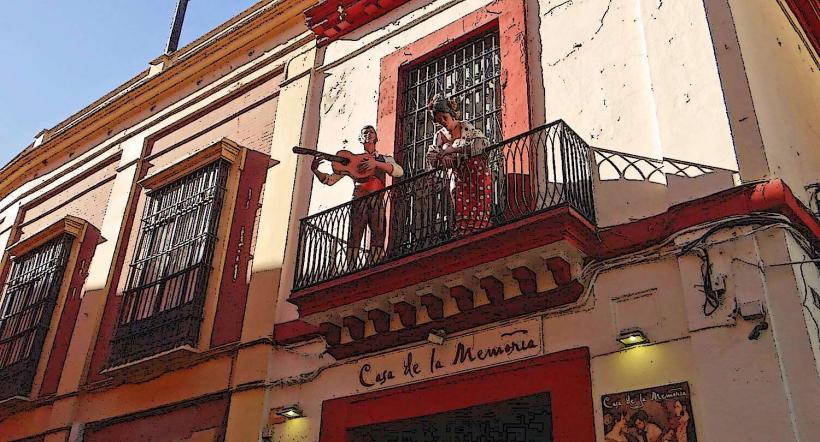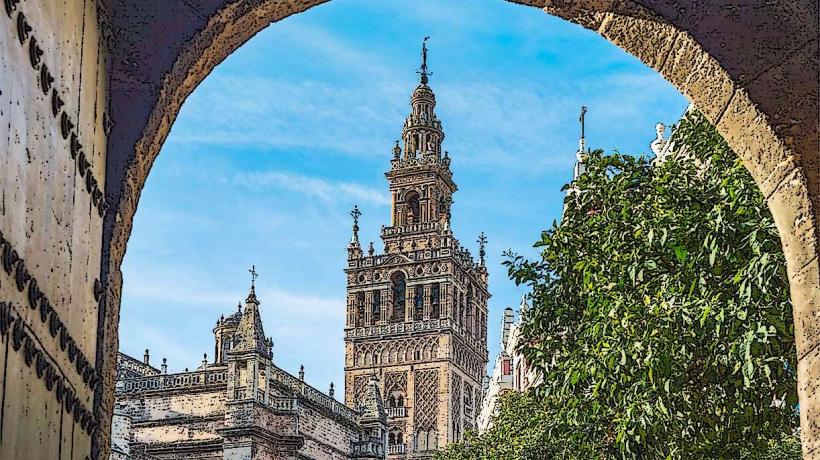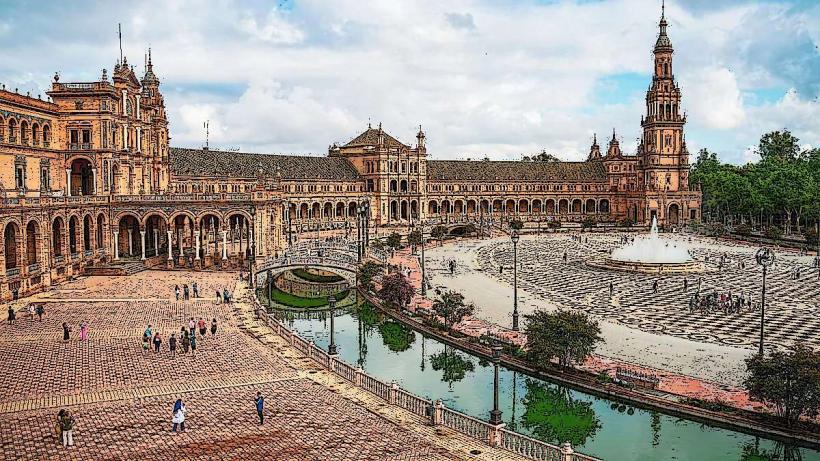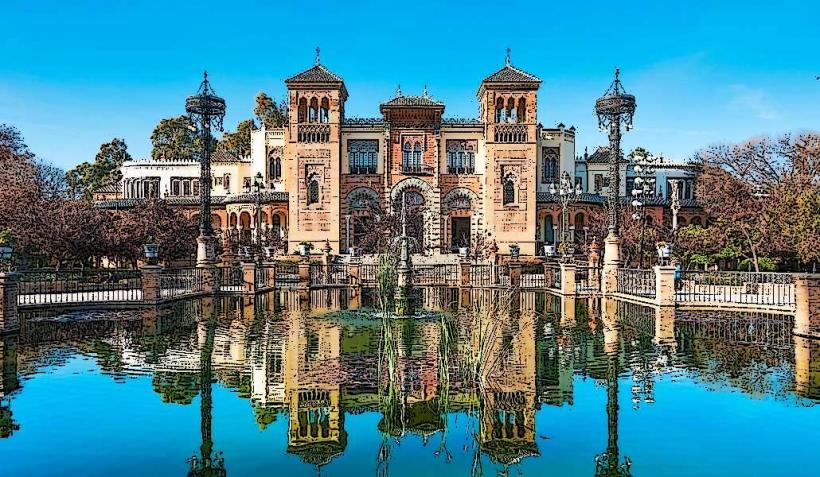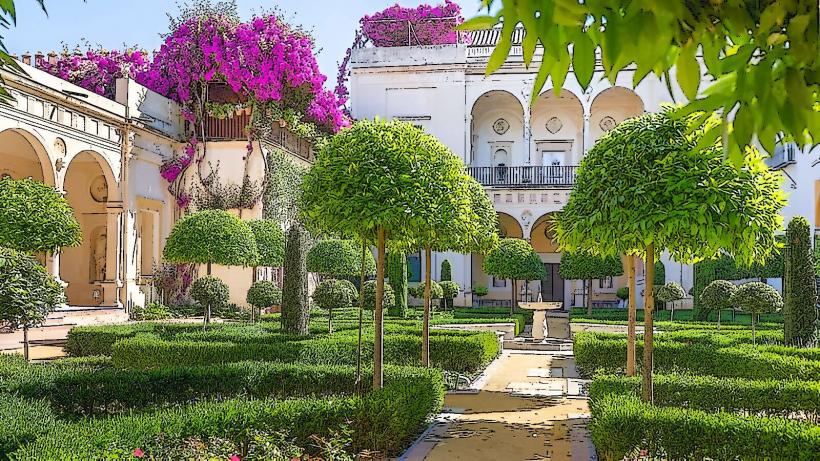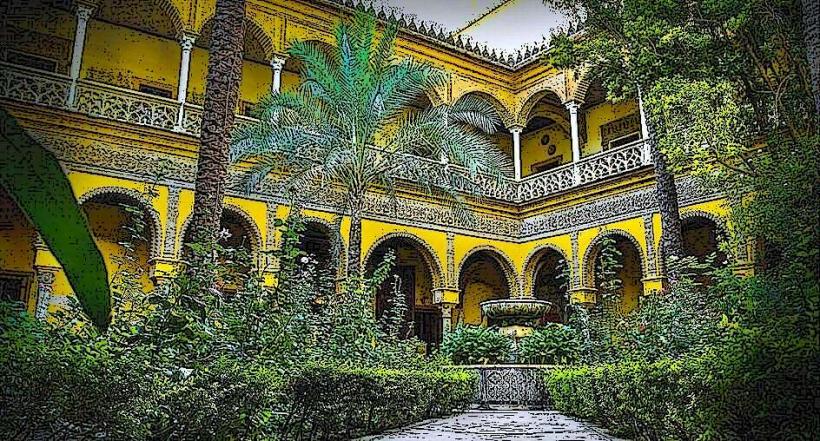Information
Landmark: Basilica de la MacarenaCity: Seville
Country: Spain
Continent: Europe
Basilica de la Macarena, Seville, Spain, Europe
The Basilica de la Macarena is a Catholic place of worship located in the San Gil neighborhood of Seville, Spain, facing the Calle Bécquer. It serves as the seat of the Hermandad de la Esperanza Macarena and is a primary destination for religious pilgrimage in Andalusia.
Visual Characteristics
The building features a Neo-Baroque architectural style with a white-washed exterior accented by yellow ochre trim and a single bell tower. The interior is a single-aisle basilica with lateral chapels, characterized by a gold-leaf altarpiece (retablo) and walls decorated with marble and frescoes. The central focus is the 17th-century wooden sculpture of the Virgen de la Esperanza Macarena, typically dressed in intricate gold-embroidered velvet and crowned with diamonds and emeralds.
Location & Access Logistics
The basilica is situated at Plaza de la Esperanza Macarena, approximately 2 kilometers north of the city center. It is accessible via the C1, C2, C3, and C4 bus lines which stop at the Resolana station directly across the street. While the surrounding streets are narrow, a public underground parking facility is located at the nearby Hospital de las Cinco Llagas.
Historical & Ecological Origin
Construction of the current basilica began in 1941 and was completed in 1949 under the direction of architect Aurelio Gómez Millán. The site was commissioned to house the sacred images of the Macarena brotherhood after their previous chapel was destroyed by fire during the Spanish Civil War in 1936.
Key Highlights & Activities
Veneration of the Virgin Mary is the primary activity; the image is visible behind the main altar. The Treasury Museum (Museo de la Macarena) is adjacent to the church and displays liturgical items, processional floats (pasos), and the Virgin's mantles. Religious services are held daily, with high-capacity crowds attending during Holy Week (Semana Santa).
Infrastructure & Amenities
Restrooms are located within the Treasury Museum complex. The immediate vicinity has full 5G cellular coverage. Shade is provided by the internal structure of the church and the arcade of the museum entrance, though the outdoor plaza is exposed. Numerous small bars and traditional food vendors are situated on the surrounding Calle San Luis and Calle Feria.
Best Time to Visit
The best time for interior photography (without flash) is mid-morning on weekdays when natural light enters the nave. March and April are the most significant months due to Holy Week, though crowd density is extreme. The church is typically closed for a mid-day siesta between 14:00 and 17:00.
Facts & Legends
A local legend claims the image of the Virgin was originally found by a worker in the local hospital, but its true origin is attributed to an anonymous 17th-century sculptor. A historical oddity is that the emeralds worn by the Virgin were donated by the famous bullfighter Joselito "El Gallo," who was a devoted member of the brotherhood.
Nearby Landmarks
Murallas de Sevilla (Old City Walls): 0.1km East
Arco de la Macarena: 0.05km East
Parliament of Andalusia: 0.2km West
Alameda de Hércules: 0.9km Southwest
Hospital de las Cinco Llagas: 0.2km Northwest

